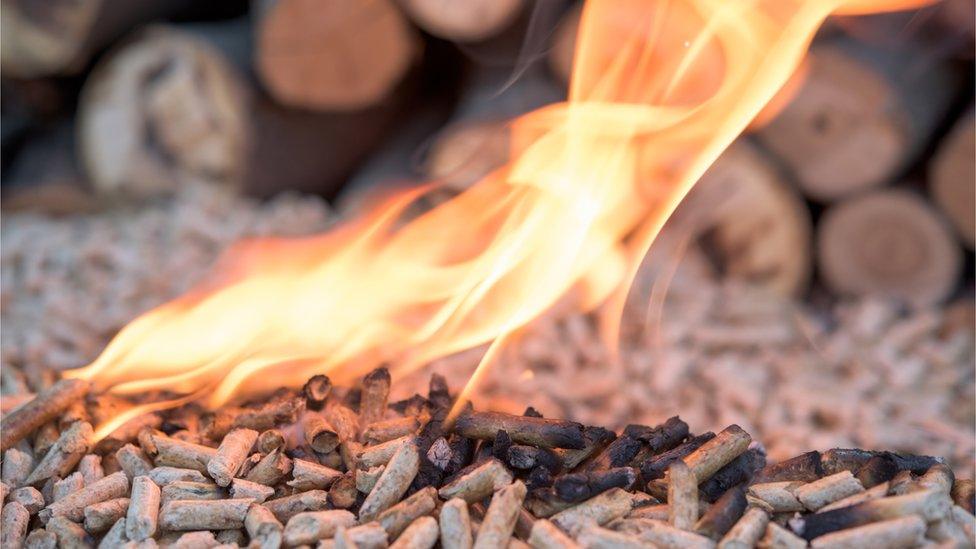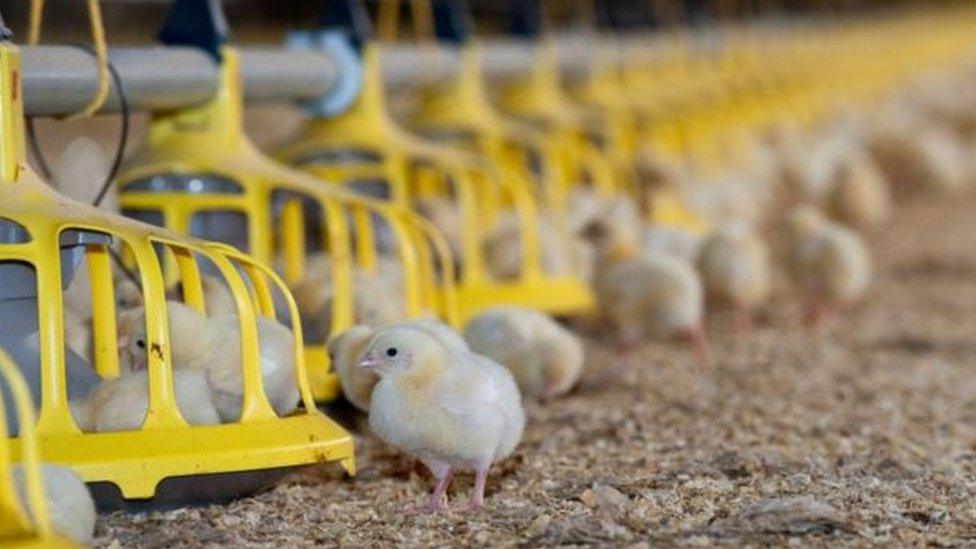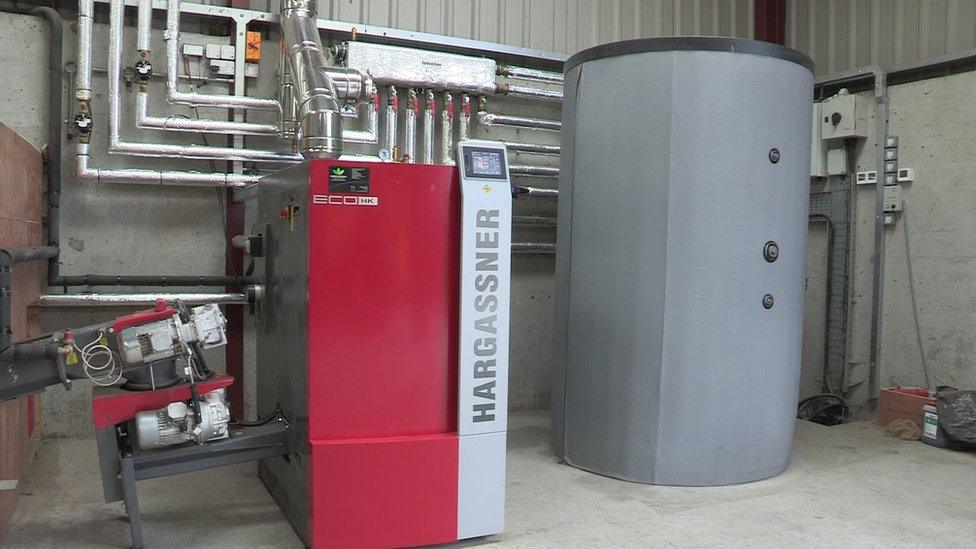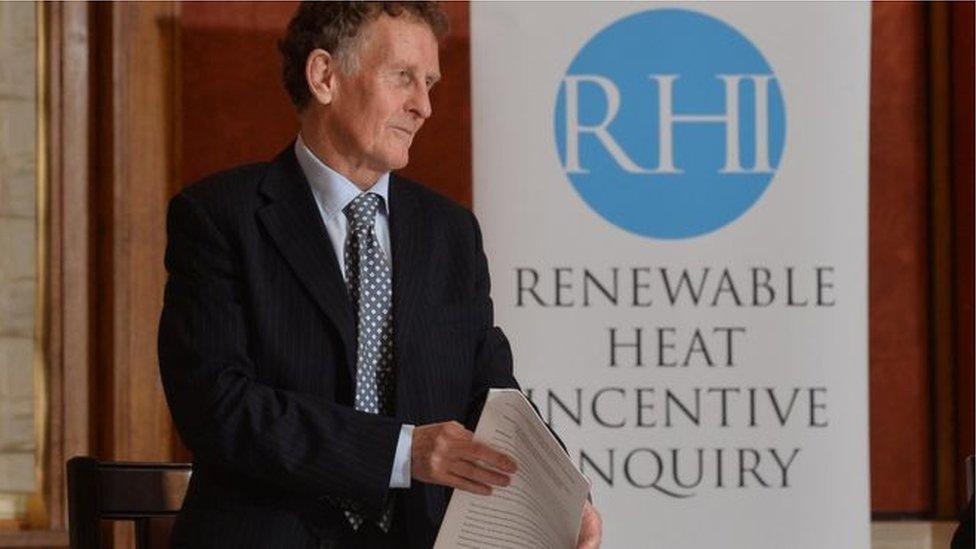RHI cuts 'significant risk to NI poultry producers'
- Published

The Renewable Heat Incentive scheme is approximately £490m over budget
Big cuts in RHI payments have created a "significant risk" for Northern Ireland poultry producers, MPs have been told.
Justin Coleman, a senior figure from Moy Park, was giving evidence at the Northern Ireland Affairs Committee.
He said the cut had been "devastating" for about 650 farm families who supply Moy Park with eggs and table birds.
Mr Coleman said a huge disparity between RHI payment rates in Britain, the Republic and Northern Ireland had created a "two tier" system.
He said Northern Ireland producers were "right at the back of the queue".
Poultry producers in the Republic of Ireland can earn a maximum subsidy of around 39,000 euros (£33,500) per boiler, while in Britain the maximum is about £23,000.

Mr Coleman said the cut had been "devastating" for about 650 farm families who supply Moy Park with eggs and table birds
The most any boiler owner here can now earn is just over £3,000, though the majority will earn a maximum of £2,200 because they have smaller installations.
Justin Coleman said Moy Park could not understand the logic for the most recent reduction in subsidy rates which had cut average payments in Northern Ireland from £13,000.
At the new level, he agreed, the subsidy was "as good as zero" because it barely covered the maintenance costs.
Mr Coleman insisted Moy Park, which also employs 6,000 processing staff, was committed to Northern Ireland.
He also said he believed that officials in Northern Ireland had "overcorrected" when they introduced the latest cuts.
Mr Coleman revealed that many producers intend to switch back to fossil fuel heating when current stocks of wood pellets run out.
Acceptable outcome
Questions have been asked about the disparity in payment rates when all three schemes in GB, NI and the Republic of Ireland, must comply with the same EU rules to prevent unfair competition.
Mr Coleman said an outcome which saw Northern Ireland eligible for the same rates as Great Britain would be acceptable.
About 800 of the 2,000 boilers on the RHI scheme are in poultry farms, many of them supplying Moy Park.
MPs began their inquiry into the RHI payment rates after concerns were raised about the lack of scrutiny of legislation which established them.

A biomass boiler, similar to those owned by some RHI scheme claimants
It was rushed through in a single day last month and a short inquiry before the Northern Ireland Affairs Committee was agreed.
The Renewable Heat Incentive Scheme was meant to incentivise firms to switch from fossil fuel heating to renewables, mostly wood pellet burners.
But poor design and monitoring led to massive pressure on the budget and a threatened overspend of £490m over 20 years to be paid for out of Northern Ireland's block grant.
It took the imposition of stringent cost controls to bring the budget back in line.
But many businesses claimed the cuts were too deep and firms which had signed up to the scheme in good faith were being "punished".
Some have gone to court to challenge the legality of the latest cuts. That case will be heard in June.
- Published7 November 2017

- Published14 December 2018
